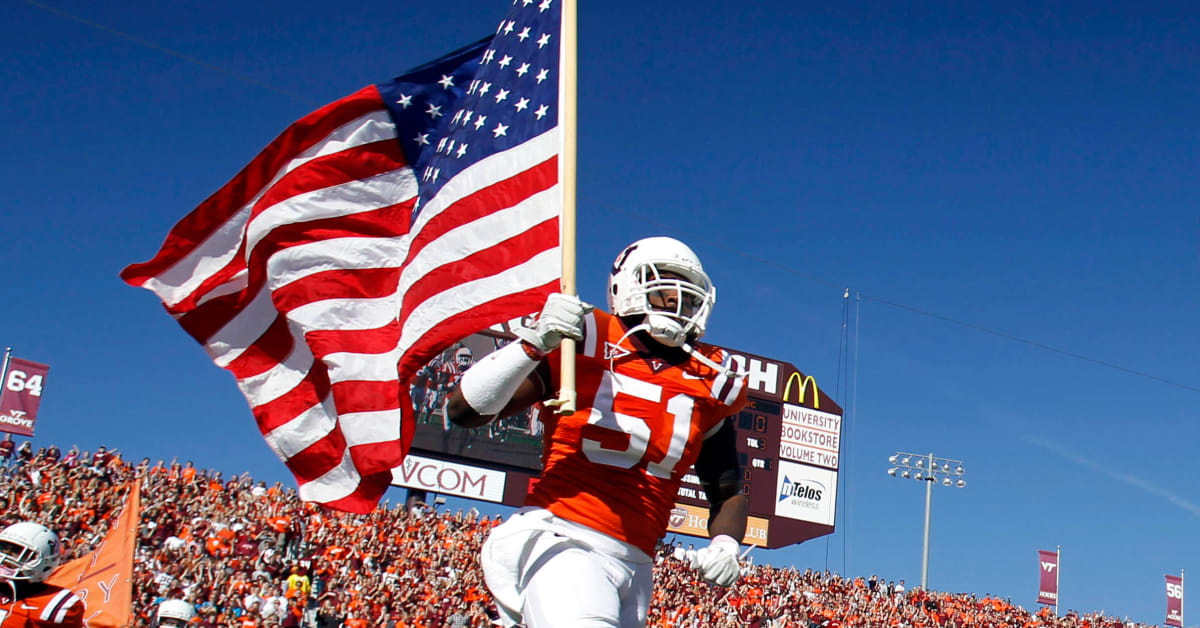
NIL in college football: Here's what you need to know, and what's next
NIL in college football
College football has been a strictly amateur sport since 1869. Officially it still is, but for the first time, players on the field are now permitted to legally put some money in their pockets.
NCAA athletes can now make money in business ventures without losing their eligibility after state laws and NCAA changes have erased rules that kept athletes from earning income in college.
Now, players can sell the rights to their name, image, and likeness. It's already been a potential windfall for the most well-known athletes, but it also presents a number of questions regarding enforcement.
Here's what you need to know about the new NIL rule changes in college football.
What is NIL?
Literally, it means "name, image, and likeness," and refers to college athletes' ability to profit off themselves.
NIL gives players the right to publicity that ordinary citizens already have, but that the NCAA previously didn't allow.
Players can accept money from businesses in exchange for using them in products or advertisements, and can also promote themselves or other companies in public appearances.
College football players, like all other student-athletes, previously could not sell their likeness while being on scholarship. The new NIL rule changes overturn that precedent completely.
When did it happen?
In June, 2021, the Supreme Court unanimously ruled in NCAA v. Alston that the NCAA was not legally allowed to limit any education-related payments to students.
From there, the NCAA deferred to states, who created their own NIL rules. Where a state didn't pass a law, schools changed their own rules.
Two things remain disallowed by NCAA rules: 1) you can't pay a player, and, 2) no quid pro quo.
Players aren't supposed to get any compensation tied for performance, and recruits cannot sign any NIL deal contingent on going to any particular school.
As usual, some schools and players got ahead of the process and cashed in early, while others didn't and got left behind.
A wave of endorsements followed, including shoe deals, local business deals, car dealer partnerships, players signing with agents, paid social posts, etc.
What is an NIL collective?
A collective is a company, usually established by wealthy alumni at schools, that collects financial resources and directs them to athletes for the right to use their name, image, and likeness.
Collectives help facilitate NIL deals for athletes, but are not operated by universities or their athletic departments.
Booster involvement in recruiting has always been against the rules, and the NCAA is stepping up its enforcement of that rule to include any potential NIL violations that may involve boosters using collectives to lure recruits to their schools with the promise of big NIL deals.
How do players make money?
Athletes can profit in a number of ways, including (but not limited to)
- appearing in ad campaigns
- selling ads on their social accounts
- selling merchandise
- starting their own sports camps
- starting their own businesses
- selling signed memorabilia
- making paid appearances
- delivering speeches for money
- arranging autograph signings
Expect to see college football stars in local and national commercials, for all kinds of products.
Who benefits?
Mostly, the top college football players from the top schools with the most recognition.
Some have signed deals in the hundreds of thousands of dollars, while elite stars have inked reported deals that run into seven figures.
But in theory, all college athletes are eligible to get something out of this, and players of all kinds have earned a wide range of amounts.
As in all businesses, there will be a few big winners and a lot of mid-range earners.
Where do agents come in?
Right at the start, and through the whole process. NIL rules in all states allow players to sign agents who will help secure endorsements, appearances, and the like.
And they'll take their cut like they do for other clients. Players can also sign with lawyers and tax experts to help with their finances and contracts.
But allowing agents in this arrangement comes with one big exception. Agents doing NIL deals can't write their contracts so they automatically represent these players in future deals once they go pro.
What's next?
After failing to take the lead on NIL rule changes, the NCAA has sought to establish itself as the enforcer of existing rules.
As such, in January 2024, the NCAA Division I Council voted to create new standards for NIL contracts in a move to ostensibly protect athletes following a decision made at its annual convention in the new year.
The NCAA will create standard terms for NIL contracts to make sure athletes are not taken advantage of by misleading expectations or terms from school collectives. It will also work with schools and collectives to distribute NIL data in an effort to create more transparency in the marketplace.
The NCAA has also proposed new rules that would allow itself and schools to help facilitate NIL deals for players in the future.
That's in addition to NCAA president Charlie Baker's hopes that his institution can create a new subdivision involving direct payment to athletes through a trust in what would be a major move towards providing compensation to college athletes.
More college football from SI: Top 25 Rankings | Schedule | All Teams
Follow College Football HQ: Bookmark | Rankings | Facebook
